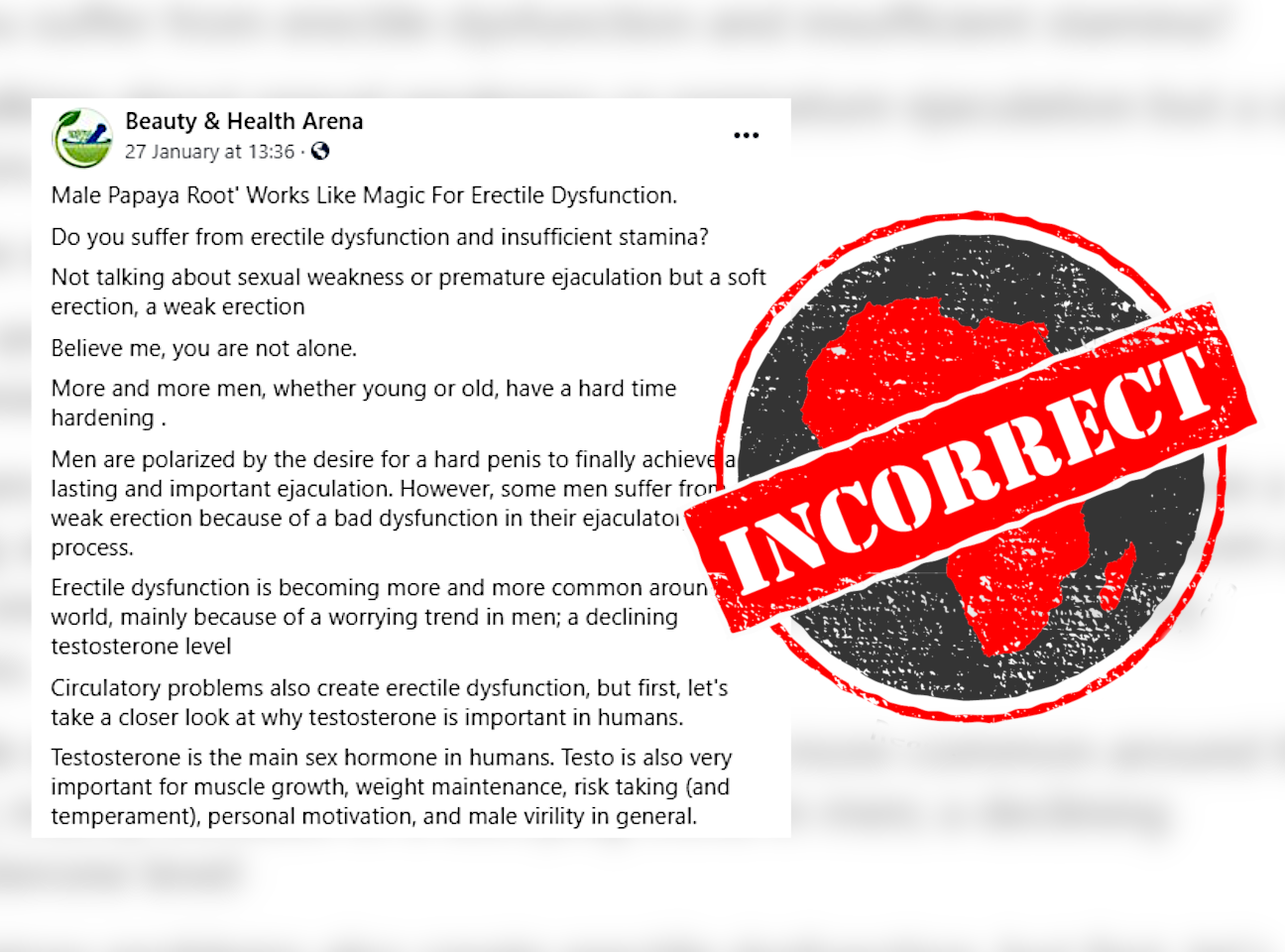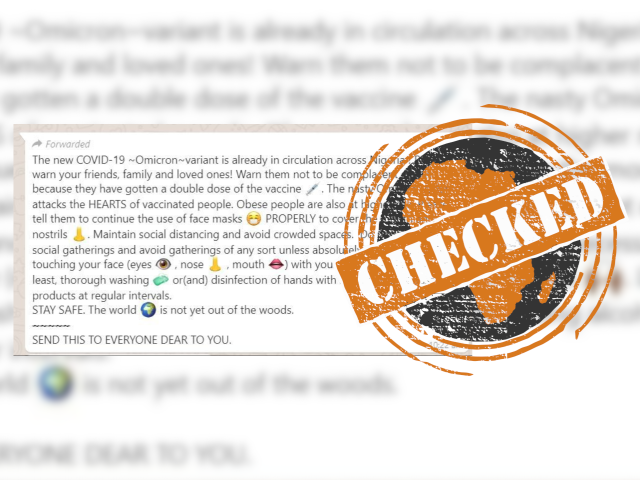“Male papaya root works like magic for erectile dysfunction,” reads a message posted on Facebook in Nigeria.
“Wash the roots well and cut them into pieces. Dip or soak in water for 24 hours. A man with a weak erection should have a drink, three times a day, until improvement,” it reads.
“Natural remedies contain natural substances that strengthen the blood circulation and lead to the pelvic area. When the blood reaches the penis, it becomes red and full of blood, a mechanism that triggers a hard erection.”
Erectile dysfunction is where a man is unable to get or keep an erection firm enough for sex.
But will this mixture cure the condition?

No scientific evidence
We asked Olayiwola Shittu, a professor of urological surgery at University of Ibadan in western Nigeria, about the claim.
He said that the content of any home-made mixture had to be analysed to determine if it contained chemicals that would allow men to gain an erection.
“Scientifically I have no information that confirms this works,” he said.
Shittu added that if the mixture appeared to work for some men, the effect would be psychological – not a result of the mixture.
“A remedy that is known not to contain any medication can seem to give the patient comfort, and this could be the case here,” he said.
He advised people not to use unproven remedies, but instead rely on treatments with clinically tested efficacy, proven to cause no harm.
Africa previously checked a similar claim that onions, lime, kola and garlic drink could cure erectile dysfunction, which we found to be incorrect.
Republish our content for free
For publishers: what to do if your post is rated false
A fact-checker has rated your Facebook or Instagram post as “false”, “altered”, “partly false” or “missing context”. This could have serious consequences. What do you do?
Click on our guide for the steps you should follow.
Publishers guideAfrica Check teams up with Facebook
Africa Check is a partner in Meta's third-party fact-checking programme to help stop the spread of false information on social media.
The content we rate as “false” will be downgraded on Facebook and Instagram. This means fewer people will see it.
You can also help identify false information on Facebook. This guide explains how.





Add new comment